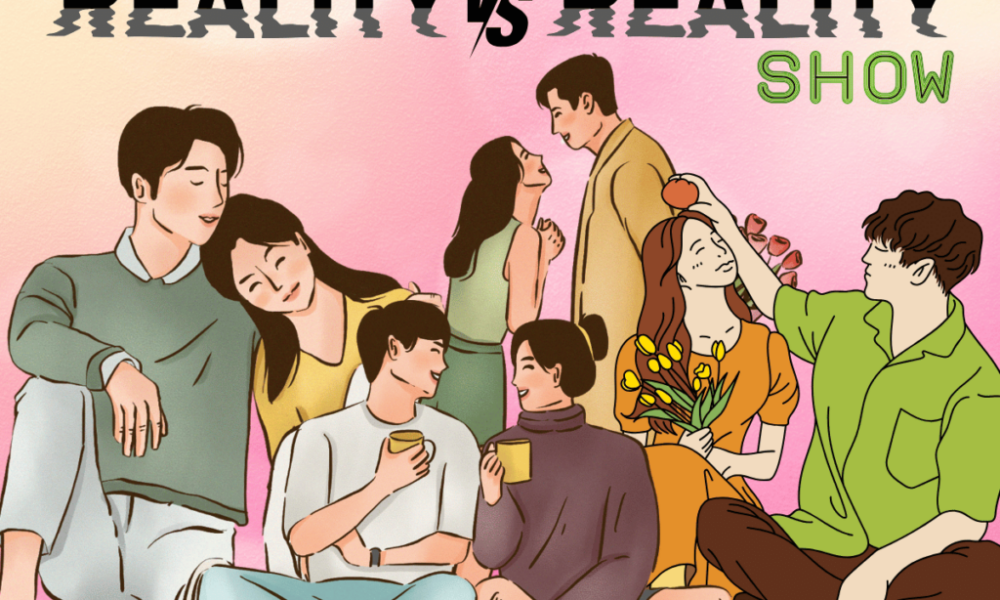Lifestyle
The Chaotic Shift of Dating and Relationships on/by Social Media
Know when and how people prioritise reels over reality, turn their oversharing into reality shows and reduce dating to nothing.

Instagram is an altered world for everything from aesthetic lifestyle to makeup tutorials and is no longer about pretty pictures and our whereabouts. It is evolving into a stage where relationships are brought forward like soap operas, complete with cheesy couple videos, chaotic dating tales and drama that some find inspiring, while others see it as annoying as anything present in this world. The platform is a hub for those who fancy fairy tales and romantic mush, but it is also a headache for those allergic to all things overly sweet or cheesy. (Tasty but unhealthy)
The Oversharing Pandemic
Indians embrace everything and anything, and we’re joining everyone in the world in the trend of oversharing our love lives online. It’s not just about couple teasers, cute fights or proposals, or even little pranks they pull on each other; every tiny detail is out there. While these videos are often funny, they also feel staged and far from reality.
The truth? Most people don’t live the glossy, perfectly-edited lives they post on Instagram.
Of course, you are smart enough to understand this!
Over time, social media has long shifted from a space for harmless cat videos to a noisy carnival of bizarre dating questionnaires and cringe-worthy relationship dramas. The recent boom in street interviews asking people about red and green flags in relationships has taken things to a whole new level.
The red and green flag concept oversimplifies the complexity of human behaviour. Characteristics that may seem negative in one situation could be positive in another. A person who avoids deep conversations might be a “red flag”, but a “green flag” could be their sharp focus and attention to their partner. Yet, these questionnaires and trends often reduce human interactions into black-and-white verdicts, creating a wave of shallow judgments.
Reality Show Dating Arises
The line between reality and content is blurred. Hundreds of channels have cropped up, exposing people’s dating behaviour, setting traps to test loyalty and either celebrating or trolling them based on the results. The comments section often becomes a battleground where viewers just want to vomit harsh judgments. What’s worse, such “content” trivialises serious matters, turning them just for entertainment.
The couple influencers and love guru-style reels and accounts are beyond harmless fun. They serve storytelling, whether narrating personal love stories, giving candid glimpses into intimate moments, or providing questionable dating advice. The gossips and insights of infuencers’ love lives attracts audiences, offering humour, highs, and embarrassment. It’s a new form of binge-worthy drama that’s hard for mere Instagram users to resist.
Oversharing isn’t new, but it has now escalated to absurd levels. From YouTube vloggers treating their lives like 24/7 CCTV feeds using their families and kids as props, the extent of self-exposure is mind-boggling. It’s like living in a self-made “Bigg Boss” house, but you get to choose what to show and earn money.
Data Don’t Die
A study by Bumble involving over 41,000 participants reveals dating trends that will dominate by 2025. Dating content ranging from live-streamed breakups to post-date debriefs and relationship “tests” is turning into everyone’s favourite for the juiciness and the drama. In India, nearly half of singles celebrate dating content that reveals both the highs and the lows, making it relatable and real.
Surprisingly, this trend has neutral effects. Many people feel lonely, and some are optimistic after watching such content. The transparency inspires healthier conversations about red flags and relationship goals. However, while the data looks like watering a rose plant, the reality of social media’s impact is more complicated and cringy than real life.
Oversharing is Overpaying
Everything comes at a price, but oversharing is expensive—just like gold, it barely decreases. A moment of sweetness shared online might initially bring joy, but when it fails to garner the expected likes or comments, it can lead to self-doubt. Beyond this, oversharing affects viewers, too, especially younger audiences, who may develop skewed perceptions of relationships and dating.
At its worst, this bubble of “authenticity” forces people to play roles they don’t naturally fit into. It turns private moments and emotions into public drama and creates unrealistic benchmarks for love and relationships.
A Bigger Screen
The fascination with love stories isn’t new. Shows like Splitsvilla, Love Is Blind, Temptation Island and even regional shows like Kathala Veedilo have charmed audiences with their blend of romance and chaos. Social media has brought these themes into everyday life, turning ordinary people into protagonists of their romantic sagas and going as random as they get with barely any filters and censors.
The world might enjoy a juicy narrative, but meaningful connections thrive away from the glare of the internet. Even your favourite loving influencers online have a different life. Enjoy them just as content, once you take everything you see seriously, you can never date.
Your Takeaway is Ready
Social media might make dating look like a complicated string, but the essence of true love lies in its simplicity and privacy. So, while you scroll through those couple reels and relationship dramas, take it all with a pinch of salt. After all, the most beautiful thing one needs to understand is your love and personal life don’t need an audience. If you’re the audience, stay in the audience. Not every aspect of life requires an influencer’s guidance. Some things, especially those close to your heart, should be shaped by your self-influence.
